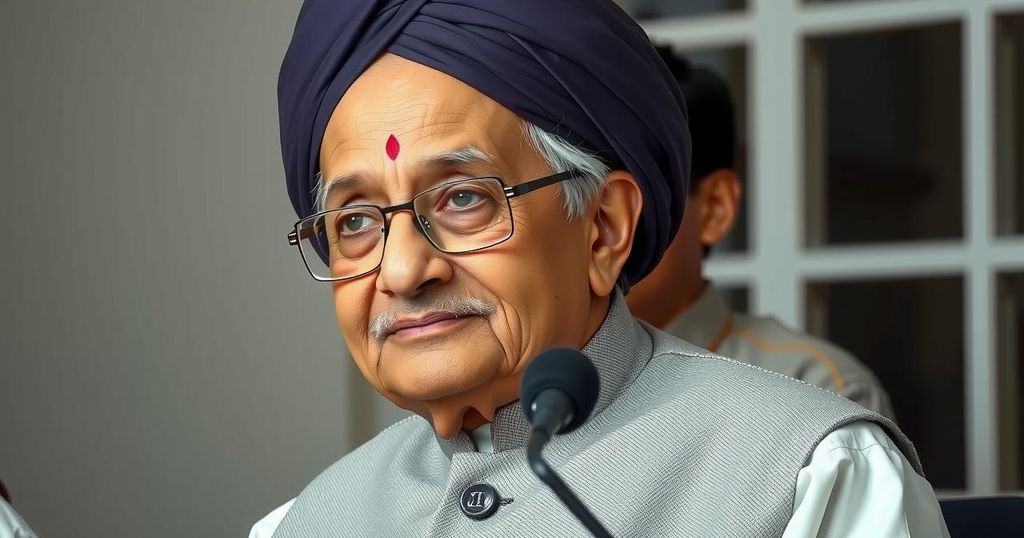Obituary: Manmohan Singh, Former Prime Minister of India, Passes Away at 92
Former Indian Prime Minister Manmohan Singh has died at 92. Singh was known for implementing key economic reforms that revived India’s economy during his tenure from 2004 to 2014. Despite his achievements, he faced significant challenges, including corruption scandals that affected his administration’s reputation. He remains a respected figure for his contributions to India’s economic policy and foreign relations.
Manmohan Singh, the former Prime Minister of India and a key figure in the nation’s economic reform, has passed away at the age of 92. Serving as Prime Minister from 2004 to 2014, Singh was instrumental in implementing liberalizing economic policies that significantly transformed India’s economic landscape. He was first appointed as Finance Minister in 1991 during a financial crisis, where he initiated a series of reforms that revived India’s economy. Singh’s tenure as Prime Minister saw India rise in global stature but was also marred by corruption scandals that tarnished his administration’s image. Born in a small village in Punjab, he was educated at prestigious institutions in the UK and entered politics as a respected economist and bureaucrat. After his time in office, he remained active in public life, offering insights on various issues, including the economic impact of the pandemic. Singh’s legacy is marked by transformative economic policies, diplomatic efforts, and a commitment to integrity in governance.
Manmohan Singh was born on September 26, 1932, in Punjab, India, in a region that lacked basic amenities. His academic journey began at Panjab University and extended to obtaining a master’s degree from the University of Cambridge and a DPhil from Oxford. His political career began in the 1990s, culminating in his role as Prime Minister. Singh faced numerous challenges, including a lack of political support and ensuing corruption allegations during his tenure, which affected his legacy. Key policies during his leadership included strengthening economic growth and fostering international relations, particularly regarding nuclear cooperation with the United States. Despite facing criticism and challenges, he was acknowledged for his capacity to navigate complex political coalitions.
In conclusion, Manmohan Singh’s passing marks the loss of a significant figure in Indian political history. His role as the architect of crucial economic reforms has left a lasting legacy, but his tenure also serves as a reminder of the complexities and challenges of governance. While his achievements in enhancing India’s global standing are noteworthy, the corruption scandals that plagued his administration also reflect the inherent difficulties within political leadership. Ultimately, Singh’s contributions to India’s economic and diplomatic landscape will be remembered as pivotal in shaping the country’s trajectory in the 21st century.
Original Source: www.bbc.com








Post Comment